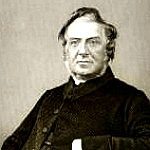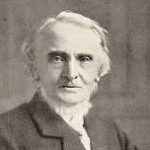Quotes about Godliness
The word discipline has disappeared from our minds, our mouths, our pulpits, and our culture. We hardly know what discipline means in modern American society. And yet, there is no other way to attain godliness; discipline is the path to godliness.
Godly living centers not on we avoid, but on whom we embrace. Anytime we talk more about dos and don’ts than about Jesus, something’s wrong.
The Grace and Truth Paradox, 2003, Used by Permission from Eternal Perspective Ministries, www.epm.org, p. 37.
The way to godly living is surprisingly simple: We are to walk with God in His appointed way (Micah 6:8), diligently using the means of grace and the spiritual disciplines, and waiting upon the Holy Spirit for blessing. Note that godly living involves both discipline and grace. This emphasis upon duty and grace is fundamental to Reformed, experiential thinking on godly living.
If truth were told, most of us spend longer each day on personal cleanliness than on practical godliness.
Made For His Pleasure, Moody Press, 1996, p. 46. Get this book!
Godlike character is both the fruit of the Spirit as He works within us and the result of our personal efforts. We are both totally dependent upon His working within us and totally responsible for our own character development. This is an apparent contradiction to our either-or type of thinking, but it is a truth taught over and over in the Scriptures.
The Practice of Godliness, NavPress, 1996, p. 211. Used by permission of NavPress – www.navpress.com. All rights reserved. Get this book!
Godliness is no optional spiritual luxury for a few quaint Christians of a bygone era or for some group of super-saints of today. It is both the privilege and duty of every Christian to pursue godliness, to train himself to be godly, to study diligently the practice of godliness. We don’t need any special talent or equipment. God has given to each one of us “everything we need for life and godliness” (2 Peter 1:3). The most ordinary Christian has all that he needs, and the most talented Christian must use those same means in the practice of godliness.
The Practice of Godliness, NavPress, 1996, p. 12. Used by permission of NavPress – www.navpress.com. All rights reserved. Get this book!
The practice of godliness is an exercise or discipline that focuses upon God. From this Godward attitude arises the character and conduct that we usually think of as godliness.
The Practice of Godliness, NavPress, 1996, p. 14. Used by permission of NavPress – www.navpress.com. All rights reserved. Get this book!
[Godliness is a] devotion to God which results in a life that is pleasing to Him.
The Practice of Godliness, NavPress, 1996, p. 16. Used by permission of NavPress – www.navpress.com. All rights reserved. Get this book!
Godliness is closely akin to holiness in Scripture. Strong’s Concordance lists holiness as a synonym for godliness. Vine says godliness is “that piety which is characterized by a Godward attitude; and does that which is well pleasing to Him” (Expository Dictionary of New Testament Words).
Copied from The Pursuit of Holiness by Jerry Bridges, © 1996, p. 105. Used by permission of NavPress – www.navpress.com. All rights reserved. Get this book!
We can build Godlike character only upon the foundation of a whole-hearted devotion to God. God must be the very focal point of our lives if we wish to have godly character and conduct. This point cannot be overemphasized. Too many of us focus on the outward structure of character and conduct without taking the time to build the inward foundation of devotion to God. This often results in a cold morality or legalism, or even worse, self-righteousness and spiritual pride… Godly character flows out of devotion to God and practically confirms the reality of that devotion.
The Practice of Godliness, NavPress, 1996, p. 54, 55, 56, www.navpress.com. Used by Permission. Get this book!
Godliness is more than Christian character. It covers the totality of the Christian life and provides the foundation upon which Christian character is built.
The Practice of Godliness, NavPress, 1996, p. 7. Used by permission of NavPress – www.navpress.com. All rights reserved.
Prayer – secret, fervent, believing prayer – lies at the root of all personal godliness.
People do not drift toward holiness. Apart from grace-driven effort, people do not gravitate toward godliness, prayer, obedience to Scripture, faith, and delight in the Lord. We drift toward compromise and call it tolerance; we drift toward disobedience and call it freedom; we drift toward superstition and call it faith. We cherish the indiscipline of lost self-control and call it relaxation; we slouch toward prayerlessness and delude ourselves into thinking we have escaped legalism; we slide toward godlessness and convince ourselves we have been liberated.
When it comes to growth in godliness, trusting does not put an end to trying.
Spirit-Powered, Gospel-Driven, Faith-Fueled Effort by Kevin DeYoung taken from The Hole in Our Holiness by Kevin DeYoung, copyright 2012, Crossway Books, a division of Good News Publishers, Wheaton Illinois 60187, www.crosswaybooks.org, p. 91.
We have been made to mirror God’s holiness and righteousness back to God, not so we may benefit (though there are immeasurable benefits to personal godliness), but so God will be glorified in beholding Himself in His creatures.
The rich etymology of “discipline” suggests a conscious divestment of all encumbrances, and then a determined investment of all one’s energies. Just as ancient athletes discarded everything and competed gumnos (naked), so must the disciplined Christian man divest himself of every association, habit, and tendency which impedes godliness. Then, with this lean spiritual nakedness accomplished, he must invest all his energy and sweat in the pursuit of godliness.
Disciplines of a Godly Man, Crossway Books, 1991, p. 213. Get this book!
The evidence of genuine piety is to be found in real humility, self-distrust, hungering and thirsting after righteousness, sorrow for sin, and a continual effort to regulate your thoughts, feelings, and conduct by the Word of God.
When a Christian walks irreprovably, his enemies have nowhere to fasten their teeth on him, but are forced to gnaw their own malignant tongues. As it secures the godly, thus to stop the lying mouths of foolish men, so it is as painful to them to be thus stopped, as muzzling is to beasts, and it punishes their malice. And this is a wise Christian’s way, instead of impatiently fretting at the mistakes or willful miscensures of men, to keep still on his calm temper of mind, and upright course of life, and silent innocence; this, as a rock, breaks the waves into foam that roar about it.
Taken from 1 Peter, Copyright 1972, by Robert Leighton, page 195. Published by Kregel Publications, Grand Rapids, MI. Used by Permission. All Rights Reserved.
The more that God’s Word is removed from our lives, the more inhibited our spiritual progress becomes. Nothing else can do the work that the truth does. There is no sanctifying power in human wisdom, intuition, insight, or experience. It is only in the Word of God. Only the truth revealed in Scripture sanctifies – sound teaching accurately interpreted, understood, and applied. As divine revelation is embraced, spiritual progress is made. There are no alternative routes to godly character and holy living.
No true believer is completely satisfied with his spiritual progress. Under the illuminating, sanctifying influence of the Holy Spirit, all of us are aware of the areas in our lives that still need to be refined and disciplined for the sake of godliness. In fact, the more we mature, the more capable we are of spotting the sin that still remains in our hearts.
Ah! If our likeness to God does not show itself in trifles, what is there left for it to show itself in? For our lives are all made up of trifles. The great things come three or four of them in the seventy years; the little ones every time the clock ticks.
The way to be truly happy is to be truly human, and the way to be truly human is to be truly godly.
Nearness to God brings likeness to God. The more you see God the more of God will be seen in you.
Urgently we do need a revival of personal godliness. This is, indeed; the secret if church prosperity. When individuals fall from their steadfastness, the church is tossed to and fro; when personal faith is steadfast, the church abides true to her Lord.
For [those] who have not been required to confess that it is easier to learn theology then live it, it is tempting to think maturity is more a matter of knowing than a matter of living. They think that godliness is more a matter of what you intellectually grasp than a matter of how you live your life.
Big Theological Brains and Heart Disease, by Paul David Tripp taken from Dangerous Calling by Paul David Tripp copyright 2012, Crossway Books, a division of Good News Publishers, Wheaton Illinois 60187, www.crosswaybooks.org, p. 54.
Just as we cannot believe and love Him of whom we have not heard, so we cannot grow in our faith and love of Him if we do not learn more about Him. We will not grow much in Godliness if we do not know much of what it means to be Godly. We will not become more like Christ if we don’t know more of what Christ is like.
Spiritual Disciplines for the Christian Life, 1991, p. 227, Used by permission of NavPress – www.navpress.com, All rights reserved. For more information please see the website www.BibicalSpirituality.org. Get this book!
In my own pastoral and personal Christian experience, I can say that I’ve never known a man or woman who came to spiritual maturity except through discipline. Godliness comes through discipline.
Spiritual Disciplines for the Christian Life, 1991, p. 17, Used by permission of NavPress – www.navpress.com, All rights reserved. For more information please see the website www.BibicalSpirituality.org. Get this book!
The reason use of money and the things it buys is one of the best indicators of spiritual maturity and Godliness is that we exchange such a great part of our lives for it. Because we invest most of our days working in exchange for money, there is a very real sense in which our money represents us. Therefore, how we use it expresses who we are, what our priorities are, and what’s in our hearts. As we use our money and resources Christianly, we prove our growth in Christlikeness.
Spiritual Disciplines for the Christian Life, 1991, p. 140, Used by permission of NavPress – www.navpress.com, All rights reserved. For more information please see the website www.BibicalSpirituality.org. Get this book!
Spiritual disciplines [are] the God-given means by which we are to bring ourselves before the Lord. And as we enjoy a growing relationship with Him through them, He changes us “for the purpose of godliness,” that is, He makes us more like Jesus.
Discipline Yourself…Without Legalism, www.BiblicalSpirituality.org, Used by Permission.
The gold of Godliness isn’t found on the surface of Christianity. It has to be dug from the depths with the tools of the Disciplines. But for those who persevere, the treasures are more than worth the troubles.
Spiritual Disciplines for the Christian Life, 1991, p. 22, Used by permission of NavPress – www.navpress.com, All rights reserved. For more information please see the website www.BibicalSpirituality.org.





















